Maneuvering nursing home costs can be overwhelming, especially when monthly expenses often exceed $10,000. It’s important to explore your financial options, from understanding Medicaid eligibility to evaluating Veterans Benefits if applicable. While Medicare primarily covers short-term care, alternative solutions like assisted living or home care might offer more flexibility. Understanding these various pathways can empower you in making informed choices for yourself or loved ones, but knowing where to start is essential.
Key Takeaways
- Nursing home costs can exceed $10,000 monthly, influenced by location and level of care needed.
- Financial assistance options include Medicaid, Veterans Benefits, and long-term care insurance to help cover expenses.
- Medicare provides short-term coverage for skilled nursing care, typically after a hospital stay, for up to 100 days.
- Assess eligibility for Medicaid based on income and asset criteria to access long-term nursing home coverage.
- Explore alternative care options like assisted living or home care for potentially lower costs and increased independence.
Understanding Nursing Home Costs

Understanding the costs associated with nursing home care can be overwhelming, especially since many families find themselves unprepared for the financial burden. Monthly expenses can soar, with private rooms averaging over $10,000.
Factors influencing costs include location, facility amenities, and level of care required. While nursing homes offer intensive care, the price reflects that high level of support.
You’ll need to evaluate your financial situation, considering out-of-pocket expenses versus potential assistance. Additionally, exploring alternatives like assisted living or home care might be worthwhile.
Understanding these costs upfront can help you make informed decisions for your loved ones’ future.
Financial Assistance Programs
When faced with the challenging costs of nursing home care, many families may feel overwhelmed; however, several financial assistance programs can help ease this burden.
Here are three options to take into account:
Consider these three financial assistance options to help manage nursing home care costs effectively.
- Medicaid: This government program can cover nursing home costs for those who meet specific financial criteria.
- Veterans Benefits: If you or your spouse served in the military, you might qualify for financial assistance through VA programs.
- Long-term Care Insurance: This insurance can help pay for nursing home care, easing the financial strain on families.
Exploring these options can provide essential support during a difficult time.
Medicare Coverage for Nursing Home Care

While many people assume that Medicare fully covers nursing home care, the reality is quite different. Medicare primarily offers short-term coverage, specifically for skilled nursing care following a hospital stay.
You can receive up to 100 days of care under Medicare Part A, but only if you meet certain criteria, including a doctor’s prescription. Importantly, starting on day 21, you’ll face a copayment of $209.50 per day.
After the 100 days are up, Medicare will no longer cover your nursing home expenses, emphasizing the need to explore additional financial options for long-term care.
Medicaid Coverage and Eligibility
How can Medicaid help you or your loved ones access long-term nursing home care? Medicaid provides essential coverage for those who meet specific eligibility requirements, which vary by state.
Medicaid offers vital support for accessing long-term nursing home care, contingent upon meeting state-specific eligibility criteria.
Here are three key aspects to evaluate:
- Financial Need: Your income and assets are assessed to determine eligibility.
- Medical Necessity: You must demonstrate a need for long-term care services.
- Income-Based Coinsurance: Once approved, you’ll pay a portion of your income towards care costs, while Medicaid covers the rest.
Understanding these factors can help you navigate the complexities of securing nursing home care through Medicaid effectively.
Veterans Benefits for Long-Term Care

For veterans and their families, maneuvering long-term care options can be overwhelming, especially when considering the financial implications.
Fortunately, the U.S. Department of Veterans Affairs offers various benefits that can ease this burden. Programs like the Veterans Pension and Survivors Pension provide financial assistance based on qualifying criteria.
Additionally, the Aid and Attendance benefit can further support care needs. Enrolled veterans with medical requirements may also access nursing home care through VA health care.
You’ll find three types of VA facilities—Community Living Centers, Community Nursing Homes, and State Veterans Homes—each designed to offer skilled nursing care and support.
Alternative Care Options for Seniors
As you explore care options for seniors, you’ll find that there are several alternatives to traditional nursing homes that might better suit individual needs and preferences.
Consider these options:
- Assisted Living: Residents receive help with daily activities while maintaining independence in a community setting.
- Home Care Services: Caregivers visit seniors at home, providing personalized assistance tailored to their unique needs.
- Adult Day Care: These programs offer social activities and care during the day, allowing family caregivers some respite.
Each alternative can provide the support seniors need while promoting a sense of autonomy and community.
Explore these choices to find the best fit!
Exploring Your Responsibilities and Rights

Understanding your responsibilities and rights when considering care options for seniors is essential in guaranteeing that both you and your loved ones receive the best possible support.
You have the right to choose care facilities that meet your needs while also being informed about costs and payment options. It’s important to know that, generally, you aren’t responsible for your parent’s nursing home bills unless you’ve agreed otherwise.
Additionally, nursing homes must provide adequate notice before discharge due to non-payment. Familiarizing yourself with these rights can help you navigate the complexities of nursing home costs and guarantee your loved ones receive appropriate care.
Frequently Asked Questions
How Can I Appeal a Denied Nursing Home Coverage Claim?
To appeal a denied nursing home coverage claim, you should first review the denial letter for specific reasons.
Next, gather supporting documents like medical records or care plans that substantiate your claim.
Write a detailed appeal letter addressing the denial reasons and include all necessary evidence.
Submit your appeal to the appropriate insurance provider or agency, ensuring you meet deadlines.
Follow up to confirm receipt and track the progress of your appeal.
What Happens if I Run Out of Funds in a Nursing Home?
If you run out of funds in a nursing home, it’s essential to explore your options.
Medicaid may cover your care if you meet eligibility criteria, which typically involves financial assessments.
You can also look into veterans’ benefits if you’re a veteran or a surviving spouse.
Additionally, consult with a financial advisor or elder law attorney to discuss potential resources and guarantee you receive the appropriate assistance for your situation.
Can I Negotiate Nursing Home Fees or Payment Terms?
Yes, you can negotiate nursing home fees or payment terms.
Start by discussing your financial situation with the facility’s administration. Many homes may offer flexible payment options, discounts for upfront payments, or financial assistance programs.
Don’t hesitate to ask about available resources or any special programs that might lower costs.
Are There Tax Deductions for Nursing Home Expenses?
You can potentially deduct nursing home expenses on your taxes if they meet specific criteria.
If the care is medically necessary, you might qualify for deductions under medical expenses. This includes costs for care provided for chronic illnesses or disabilities.
Keep in mind, you’ll need to itemize your deductions and the total must exceed 7.5% of your adjusted gross income.
Consulting a tax professional can help guarantee you maximize your benefits.
How Can I Choose the Right Nursing Home for My Needs?
Choosing the right nursing home involves evaluating your specific needs, preferences, and budget. Start by researching facilities in your area, focusing on their services and reputation.
Visit potential homes to evaluate cleanliness, staff interaction, and available activities. Consider staff-to-resident ratios, safety measures, and proximity to family.
It’s also essential to review costs and available financial assistance programs. Don’t hesitate to ask questions and gather feedback from current residents or their families for insight.
Bottom Line
Steering through nursing home costs can seem overwhelming, but knowing your options empowers you to make informed decisions. By exploring financial assistance programs like Medicaid and Veterans Benefits, and considering alternatives such as assisted living or home care, you can find solutions that suit your needs and budget. Remember, you have rights and responsibilities, so don’t hesitate to seek help and advocate for yourself or your loved ones. With the right information, you can guarantee quality care and maintain dignity.




